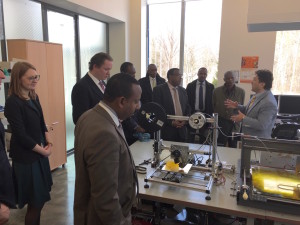 Hi-ranking Ethiopian Government officials, led by the Deputy Prime Minister of the Republic Demeke Mekonnen, visited Skoltech to get acquainted with
Hi-ranking Ethiopian Government officials, led by the Deputy Prime Minister of the Republic Demeke Mekonnen, visited Skoltech to get acquainted with
the work of the institute and assess the prospects for cooperation. Prior to its visit in Skoltech, the delegation visited at the Skolkovo foundation.
The Ethiopian delegation included the Chairman of the National Council for Science, Technology and Innovation Schiefer Shigute, the Minister of Education Abijah Ahmed, the Minister of Science and Technology Grum Abay Teshome, Ethiopian Ambassador in Russia Getahun Mekuriya, Director General of the Ministry of Science and Technology Fysseha Yitagesu and CEO of the National Council for science, technology and innovation of Ethiopia, as well as staff of the diplomatic mission.
Alexei Sitnikov, Skoltech’s Vice-President for Institutional and Resource Development, held a short presentation about the possible cooperation in the field of education and research programs, and also talked about plans for the development of material-technical base of Skoltech. Prof. Edward Crawley, Skoltech’s founding president, told the guests about the principles of Skoltech and its educational programs.
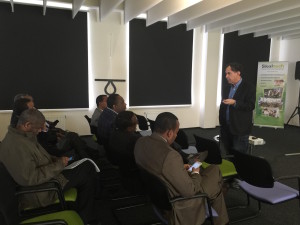 The visit took place within the framework of the Ethiopian National Council on the development of science, technology and innovation. It is an important part of the national development program for the period 2015-2020, the result of which should be to create conditions for the transformation of the country in 2025 to a better-developed society, with a higher level of income per capita. A special role in this lies with the development of education, the use of best foreign technologies, the results of scientific research in various sectors of the economy, primarily in the industrial and agricultural production – all of which, Skoltech can provide.
The visit took place within the framework of the Ethiopian National Council on the development of science, technology and innovation. It is an important part of the national development program for the period 2015-2020, the result of which should be to create conditions for the transformation of the country in 2025 to a better-developed society, with a higher level of income per capita. A special role in this lies with the development of education, the use of best foreign technologies, the results of scientific research in various sectors of the economy, primarily in the industrial and agricultural production – all of which, Skoltech can provide.
Robots which tackle social problems. People who deal with parking troubles. And students who dig out of the Moscow ground a device which transmits existential questions. What does all that have to do with art and science? Everything, if you ask Stass Shpanin and his students. Here are their final projects.
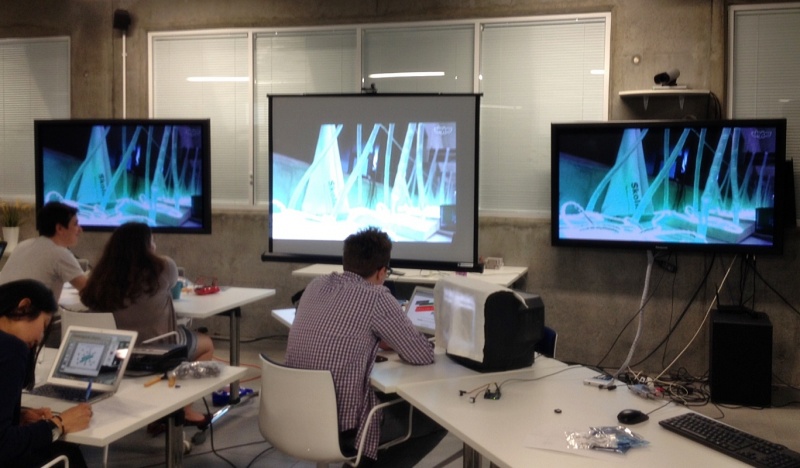
Art and Science course. Photo Stass Shpanin
Science, Technology & Art is a survey course on the scientific and artistic collaborations of the last thirty years. Skoltech students of the Master of Science program have studied the most important intersections between science and art and the different cultural phenomena created
As a practical part of the course, students had created their own cultural and social projects where they have implemented their expertise in technology and science. Those projects range from social activism project dealing with hot topics of parking in Moscow, a survey of Moscovites who were asked to answer two questions (“to be or not to be?” and “are you happy?”) and all the way to robotics that illustrate social problems and electronic systems that connect several working environments.
Here are the 6 projects presented at the Hypercube to professors, guests and journalists.
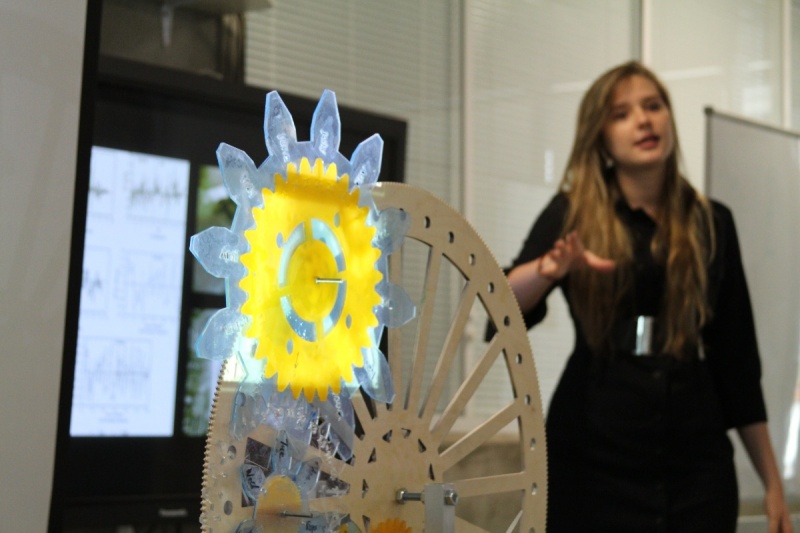
Art and Science: Anna Dubovik presenting her final project “Life Clock”

Elvira Burganova and Dmitry Smirnov present ‘Connected’ – an installation which captures the intensity of students’ talking, shouting (or singing), and translates it into water disturbances (like bubbles) in tubes located at an adjacent building. The purpose is to strengthen trust between members of the Skoltech community
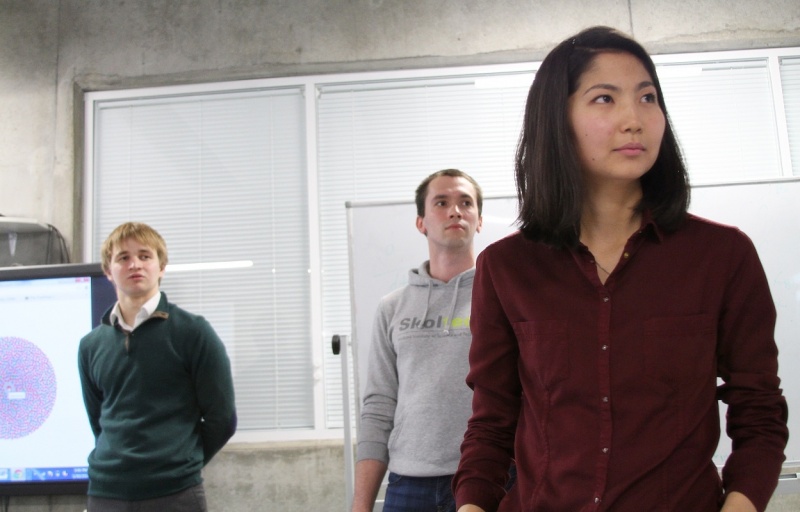
Aidana Nurzhanova, Roman Prilepskiy and Sergei Ivanov present ‘Web Data News’ an analysis of how news spread through social networks.
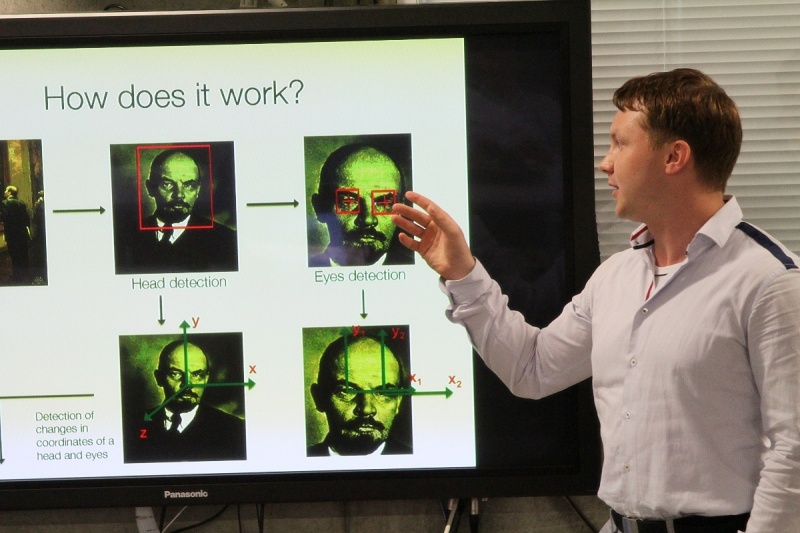
Vladimir Zhuikov presents “Stand & Stare”: a specialized camera installed a few centimeters above a painting or picture analyzes a viewer’s eyes movements. Pretty obvious when it comes to a portrait, but what happens when someone looks at an abstract work by Jackson Pollock? (with Irina Zhelavskaya, Oleg Urzhumtsev, Bogdan Uzbekov)
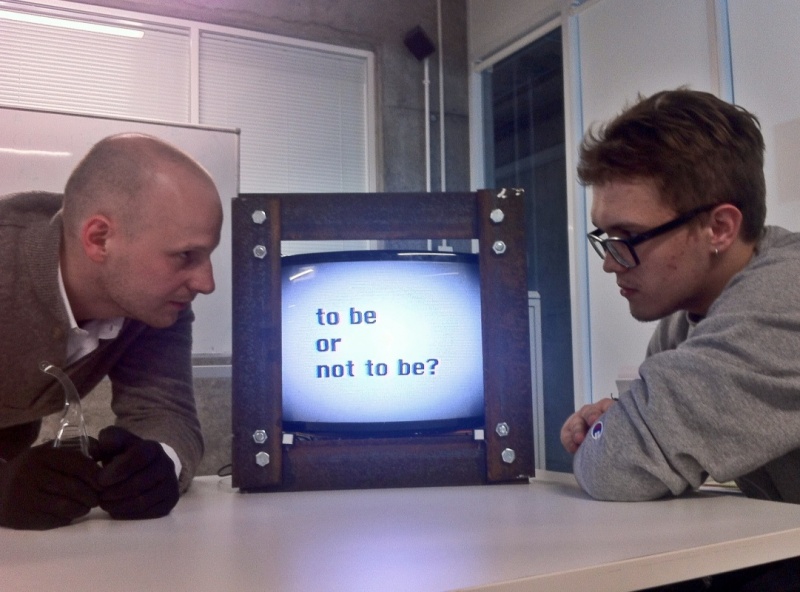
Nikolay Shuyskiy (right) and Nikita Rodichenko: “Moscow Demands”. This device was allegedly dug out of the Moscow ground. The students plans to install terminals like this one around the city and create a feedback channel
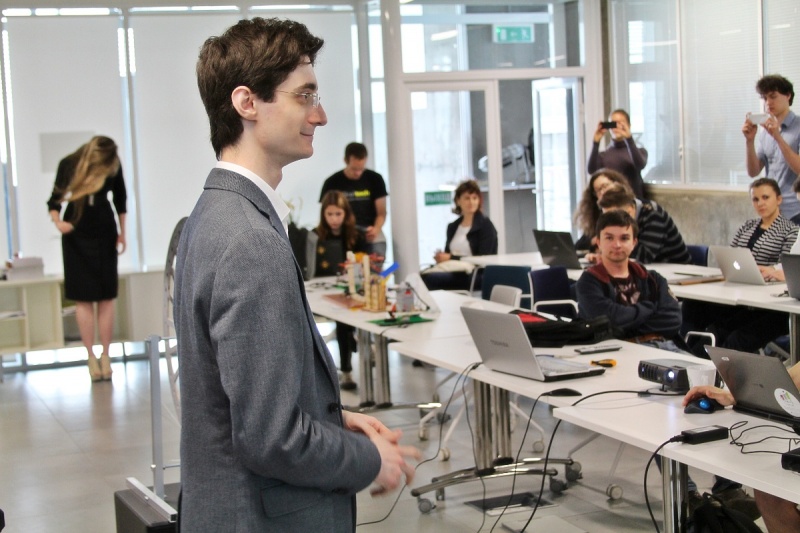
Teacher Stass Shpanin: “In the 21 century a lot of artwork is made not in the studio but in a lab where artists and scientists work together, defining and redefining our culture through technology. “
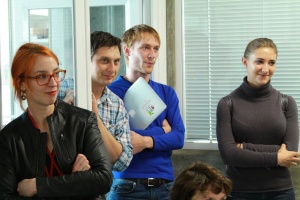
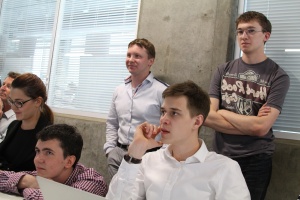
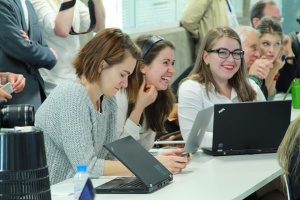
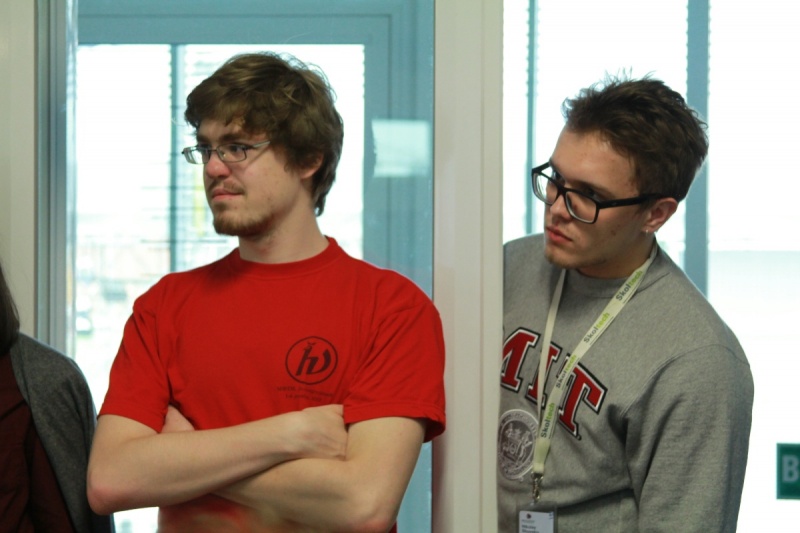
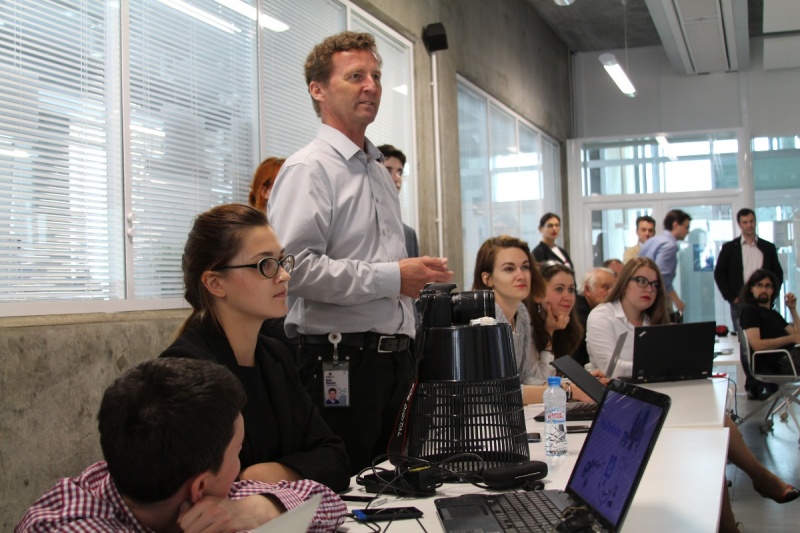
* The Skolkovo Institute of Science and Technology (Skoltech) is a private graduate research university in Skolkovo, Russia, a suburb of Moscow. Established in 2011 in collaboration with MIT, Skoltech educates global leaders in innovation, advance scientific knowledge, and foster new technologies to address critical issues facing Russia and the world. Applying international research and educational models, the university integrates the best Russian scientific traditions with twenty-first century entrepreneurship and innovation.
 Hi-ranking Ethiopian Government officials, led by the Deputy Prime Minister of the Republic Demeke Mekonnen, visited Skoltech to get acquainted with
Hi-ranking Ethiopian Government officials, led by the Deputy Prime Minister of the Republic Demeke Mekonnen, visited Skoltech to get acquainted with The visit took place within the framework of the Ethiopian National Council on the development of science, technology and innovation. It is an important part of the national development program for the period 2015-2020, the result of which should be to create conditions for the transformation of the country in 2025 to a better-developed society, with a higher level of income per capita. A special role in this lies with the development of education, the use of best foreign technologies, the results of scientific research in various sectors of the economy, primarily in the industrial and agricultural production – all of which, Skoltech can provide.
The visit took place within the framework of the Ethiopian National Council on the development of science, technology and innovation. It is an important part of the national development program for the period 2015-2020, the result of which should be to create conditions for the transformation of the country in 2025 to a better-developed society, with a higher level of income per capita. A special role in this lies with the development of education, the use of best foreign technologies, the results of scientific research in various sectors of the economy, primarily in the industrial and agricultural production – all of which, Skoltech can provide.










